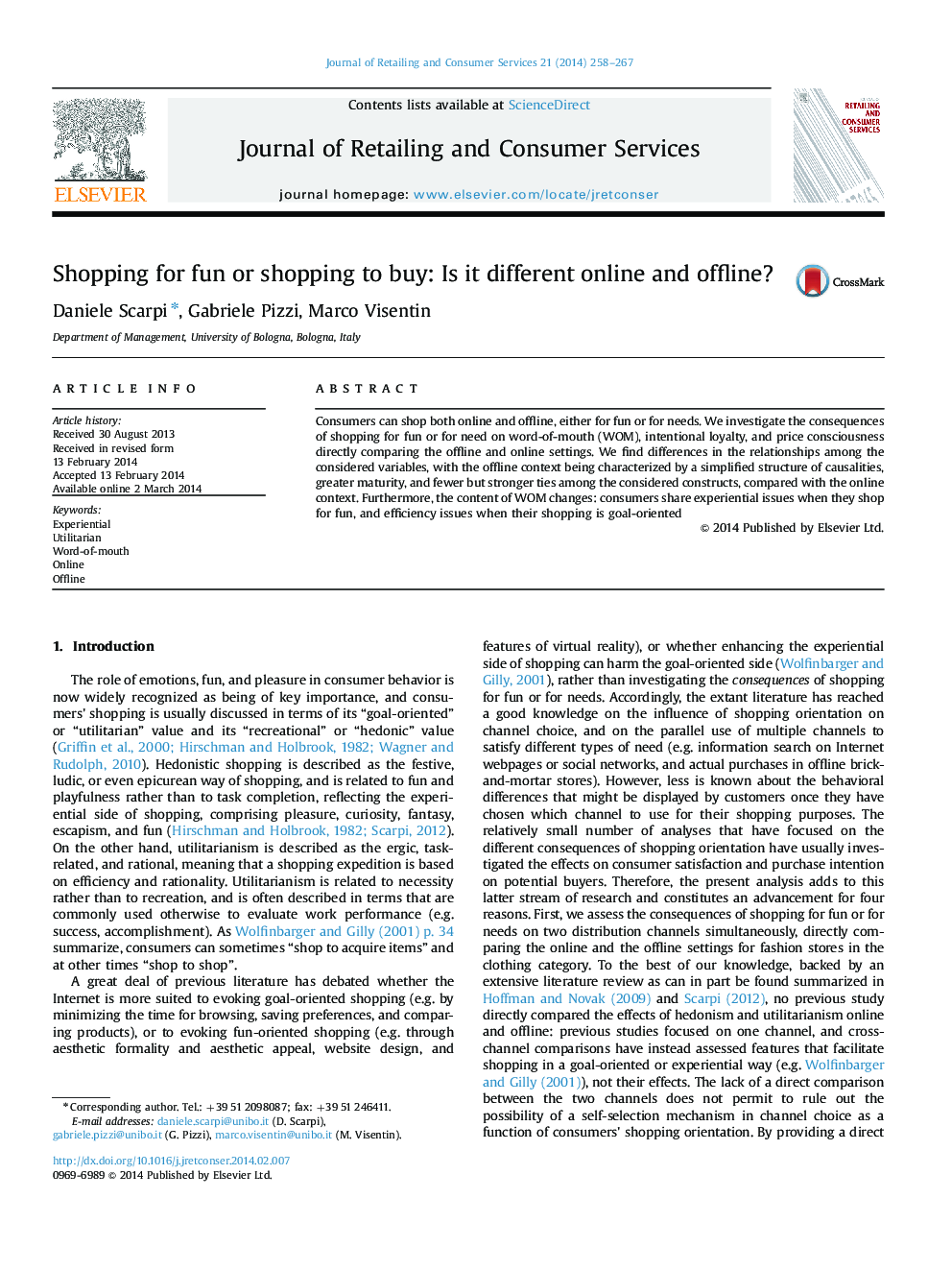| Article ID | Journal | Published Year | Pages | File Type |
|---|---|---|---|---|
| 1029058 | Journal of Retailing and Consumer Services | 2014 | 10 Pages |
•We compare hedonism and utilitarianism in online and offline channels.•We build a SEM with hedonism, utilitarianism, price consciousness, WOM and loyalty.•When shopping for fun, consumers display higher loyalty regardless of the channel.•Price consciousness is stronger online and leads to lower loyalty but higher WOM.•Online, hedonism leads to more WOM than utilitarianism; offline it is the contrary.
Consumers can shop both online and offline, either for fun or for needs. We investigate the consequences of shopping for fun or for need on word-of-mouth (WOM), intentional loyalty, and price consciousness directly comparing the offline and online settings. We find differences in the relationships among the considered variables, with the offline context being characterized by a simplified structure of causalities, greater maturity, and fewer but stronger ties among the considered constructs, compared with the online context. Furthermore, the content of WOM changes: consumers share experiential issues when they shop for fun, and efficiency issues when their shopping is goal-oriented
